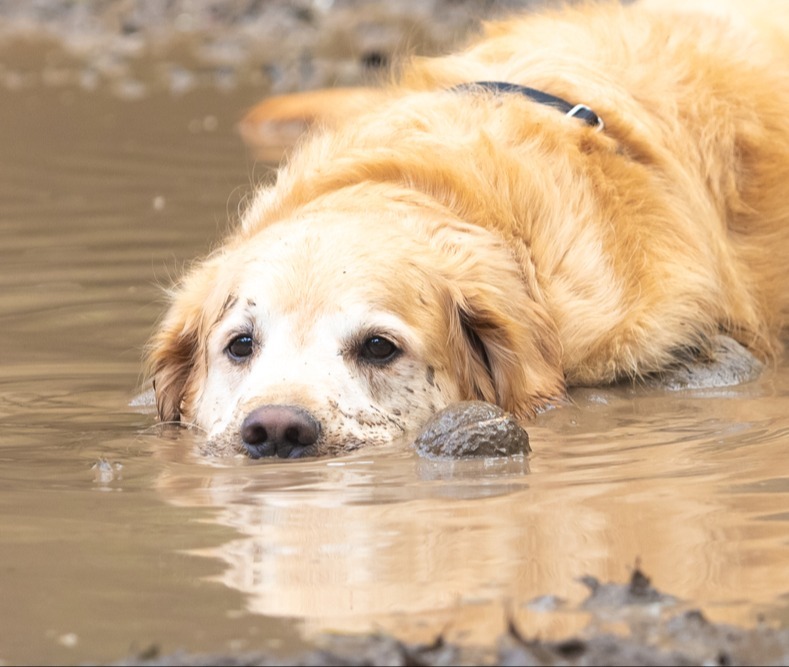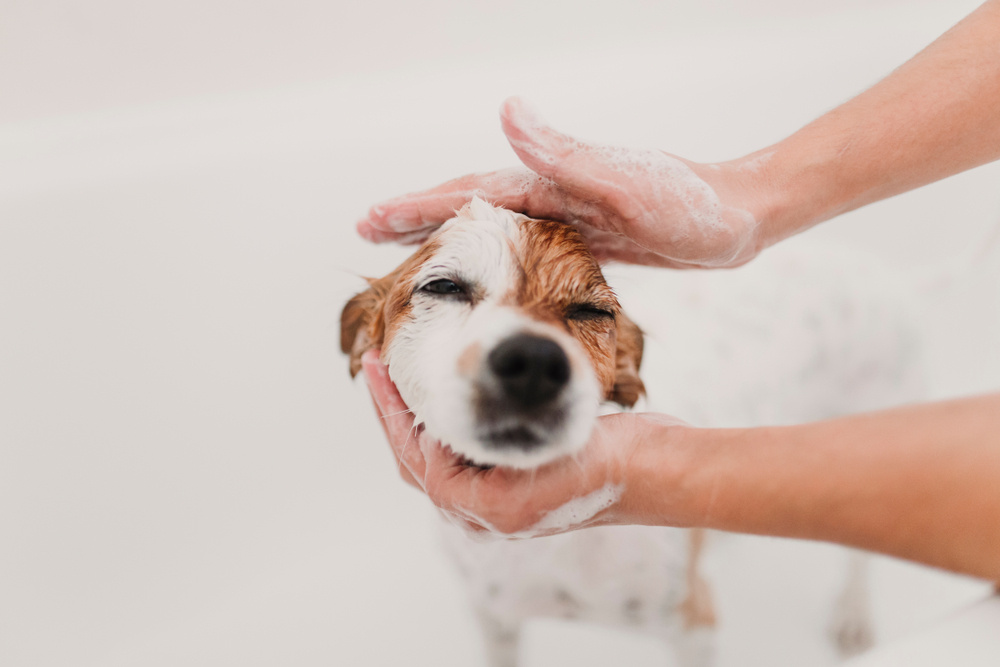
Hygiene and Hydration
Your pet’s skin does more than just keep their fur in place—it’s their first line of defense against allergens, infections, and environmental irritants. Whether your dog loves rolling in the grass or your cat has sensitive skin, keeping their skin clean and hydrated is key to long-term comfort and health.
The Importance of Skin and Coat Hygiene
Just like humans, dogs and cats benefit from regular grooming and gentle cleansing. Proper hygiene helps maintain a healthy balance on the skin’s surface and keeps irritation at bay.
- Regular skin care can help:
- Remove dirt, pollen, and excess oil from the coat
- Support a balanced skin microbiome, helping control bacteria and yeast
- Soothe itchy or irritated skin
- Maintain a strong and hydrated skin barrier
Be cautious with over-washing: Using harsh shampoos too frequently can strip the skin of natural oils, leading to dryness, itching, and even more irritation. Choose gentle, moisturizing products made specifically for pets.
Why Skin Hydration Is So Important
A hydrated skin barrier helps lock in moisture and keeps your pet’s skin soft, supple, and resistant to irritation. This is especially important for:
- Pets with allergies or atopic dermatitis
- Dogs or cats with flaky, dry, or itchy skin
- Pets recovering from skin infections or treatments
Topical hydration through moisturizing shampoos, sprays, or mousses can help soothe dryness, reduce flaking, and restore balance.
-

A good grooming routine with quality products can be vital to keep your pets skin hydrated and healthy.
What to Know About Skin Odor in Pets
Noticing an unpleasant smell from your pet’s skin? A strong or persistent odor often points to a skin imbalance, excess oil production, or overgrowth of bacteria or yeast.
Common causes of pet skin odor:
- Seborrhea: A greasy or flaky skin condition that can produce a rancid smell, especially in certain breeds.
- Bacterial or yeast overgrowth: A musty or yeasty odor, often linked to imbalanced skin flora.
- Allergies and inflammation: Conditions like atopic dermatitis can lead to smelly secondary infections.
- Skin folds and moisture: Warm, damp areas like armpits, groin, or face folds can trap moisture and breed odor-causing microbes.
Tips to Keep Your Pet’s Skin Healthy
- Brush regularly to remove dirt and dead skin
- Use hydrating skin products when needed — especially after baths
- Choose vet-recommended shampoos and mousses
- Keep skin folds and paws dry to prevent moisture buildup
- Visit your vet for regular check-ups if your pet has recurring skin problems
Healthy skin is the foundation of a shiny coat, a happy pet, and fewer vet visits. Whether your pet deals with dry skin, strong odors, or just needs a little freshening up between baths, choosing the right products and sticking to a gentle, consistent routine can make all the difference.